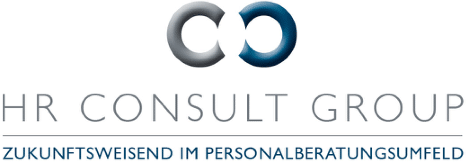Top management: In search of role models
The role of top management is crucial to the success of a company. Executives at this level bear immense responsibility and have a significant influence on corporate culture, strategic decisions, and long-term growth. But what makes a good top manager? And which role models should aspiring executives follow?
The importance of role models in top management
Role models play a crucial role in the development of leaders. They provide guidance, inspire, and set standards against which others can measure themselves. In today's complex business world, expectations of leaders are high: they are expected to be visionary, set ethical standards, possess excellent communication skills, and be able to motivate and lead their teams.
Characteristics of successful leaders
To understand which role models aspiring leaders should follow, it is important to consider the characteristics of successful leaders. Key factors include:
- Integrity and ethics: A leader must act with integrity and ethics. Trust is the foundation of any successful business relationship. Leaders such as Satya Nadella, CEO of Microsoft, are known for gaining the trust of their employees and stakeholders through transparency and integrity.
- Vision and strategic thinking: Successful leaders have a clear vision and the ability to think strategically. They can set long-term goals and plan the necessary steps to achieve them. Elon Musk, the CEO of Tesla and SpaceX, embodies this trait through his ambitious projects and his ability to turn his visions into reality.
- Communication skills: A good leader must be able to communicate effectively. This includes not only speaking, but also listening. Leaders such as Sheryl Sandberg, COO of Facebook, stand out for their ability to convey complex ideas clearly and concisely while responding to the needs and concerns of their teams.
- Adaptability and willingness to learn: In a rapidly changing world, the ability to adapt and constantly learn is crucial. Jeff Bezos, the founder of Amazon, demonstrates the importance of continuous development through his innovative spirit and willingness to break new ground.
Role models from various industries
There are numerous executives from various industries who can serve as role models. These personalities offer different approaches and leadership styles that can be useful depending on the context and personal preference:
- Indra Nooyi, former CEO of PepsiCo: Indra Nooyi is known for her strategic skills and commitment to sustainability. She led PepsiCo through significant restructuring and advocated for a healthy balance between profit and social responsibility.
- Tim Cook, CEO of Apple: Tim Cook has proven that he is not only a capable successor to Steve Jobs, but also capable of making his own mark. He is known for his calm and level-headed leadership style, as well as his focus on data protection and ethical business practices.
- Mary Barra, CEO of General Motors: Mary Barra has led General Motors through a period of major change, shifting the company's focus to electric mobility and sustainability. She demonstrates how important it is to be innovative and forward-thinking in a traditional industry.
The search for your own leadership style
While it is helpful to look to successful leaders for guidance, it is equally important to develop your own leadership style. Everyone has their own individual strengths and weaknesses, and a leadership style should be authentic and tailored to your own personality.
A good way to develop your own style is to try out different approaches and learn from different role models. Networking, mentoring, and continuous professional development are also valuable tools for developing yourself as a leader.
Conclusion
The search for role models in top management is an ongoing process. Successful leaders are characterized by integrity, strategic thinking, communication skills, and adaptability. By learning from the best and developing your own authentic leadership style, you can set yourself on the path to becoming an outstanding leader in top management. Ultimately, it's about constantly developing yourself and always remaining open to new ideas and approaches.


